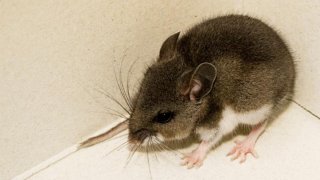
A western harvest mouse collected in routine monitoring in open space along the border of Santee and San Diego has tested positive for hantavirus, San Diego County environmental health officials announced Wednesday.
County officials are reminding people that if they find rodents in their homes, garages, sheds or cabins they should never sweep up or vacuum up after them, but use "wet-cleaning" methods instead, to keep from breathing in the virus and getting sick.
Hantavirus can potentially cause deadly infections in people and there is no vaccine or cure. However, people are rarely exposed to hantavirus because the main carriers are wild rodents that prefer to live in the wild away from people.
Hantavirus is not uncommon in San Diego County, officials said. However, people can be exposed when wild rodents shed it in their urine, feces and saliva, the matter dries and is stirred into the air where people can breathe it in.
So far in 2020, county environmental health has collected 25 rodents that have tested positive for hantavirus.
Health officials said to clean the area, ventilate the affected area by opening doors and windows for at least 30 minutes, use rubber gloves, spray a 10% bleach solution or other disinfectants onto dead rodents, rodent droppings, nests, contaminated traps and surrounding areas and let the disinfectant stand for at least 15 minutes before cleaning.
Then, clean with a sponge or a mop that has been soaked in disinfectant. Place disinfected rodents and debris into two plastic bags, seal them and discard in the trash. Wash gloves in a bleach solution, then soap and water, and dispose of them using the same double-bag method. Finally, thoroughly wash hands with soap and water.

